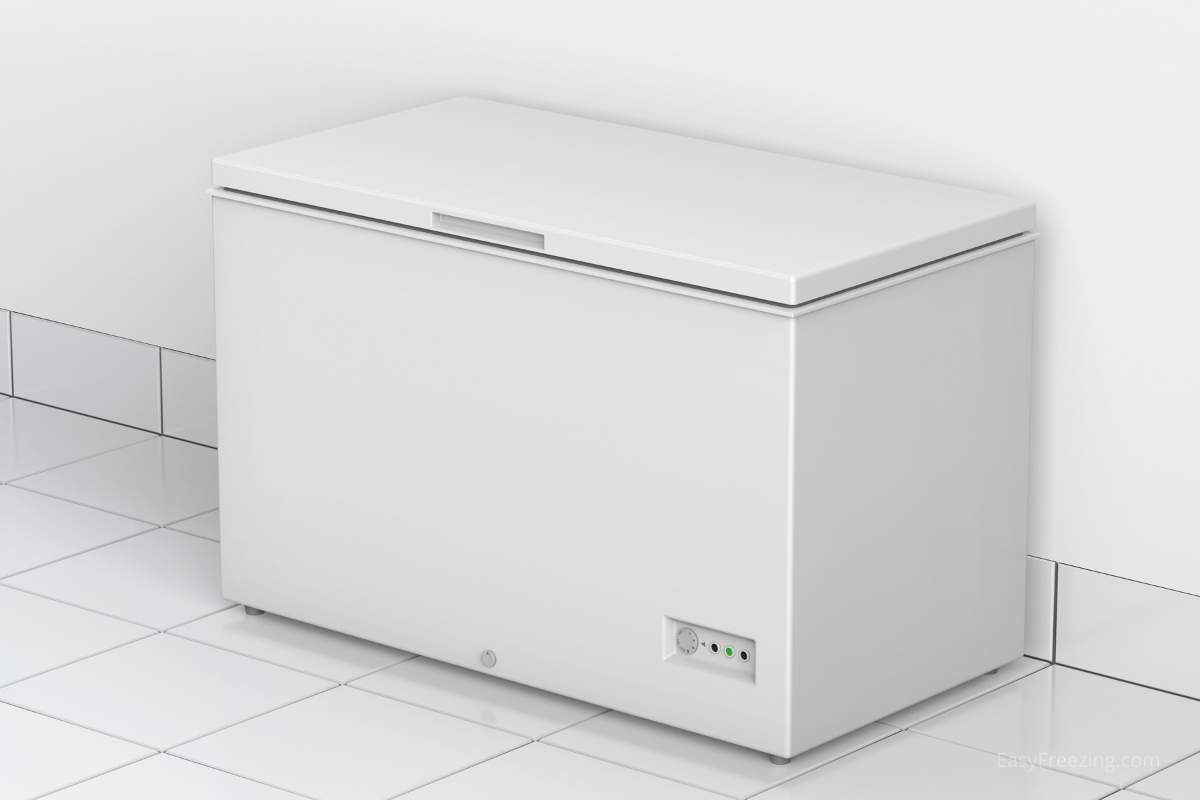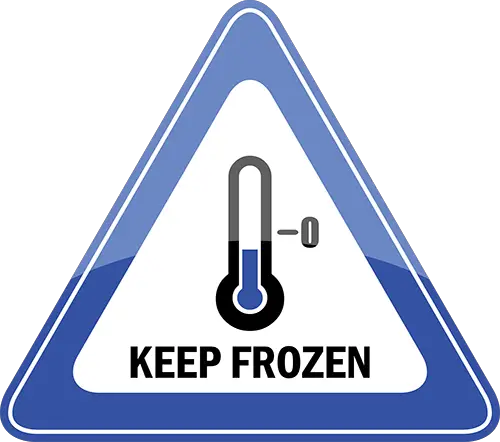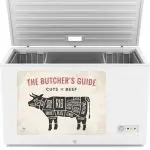Difference Between Freezer and Refrigerator (Freezer or Fridge)
Most kitchens should have both a fridge and a freezer. The fridge for keeping foods cool, and the freezer for freezing them down. A lot of people wonder whether there are any differences between the two appliances, though. So, what is the difference between freezer and refrigerator?
The most significant difference between a freezer and a refrigerator is the temperature inside. A freezer is capable of getting a lot colder than a fridge. Freezers also tend to be much more insulated, which ensures that the temperature inside remains cold.
Let’s go into depth on a few of the differences, shall we?

The Temperature of Fridges and Freezers
The main difference between a fridge and a freezer will be the temperature.
A home freezer will go all the way down to 0F (-18C) and a fridge can vary between 37F (3C) and 40F (5C).
With most freezers, you will not be able to adjust the temperature. However, you will be able to change the temperature of a fridge.
How Fridges and Freezers Cool Down
You may see a couple of differences here. However, the way in which fridges and freezers cool down is roughly the same.
Without getting too sciency, both fridges and freezers have built-in cooling systems. This cooling system will pump refrigerant around the freezer or refrigerator.
As it is pumped around, the refrigerant will go from gas to liquid, and then back again. During this process, it will extract the heat from inside the fridge or freezer, and expel it out of the back. It works in almost exactly the same way that an air conditioner system would.
There is one key difference, though. The freezer will pump that refrigerant around a lot faster. Of course, this does mean that freezers often require a lot more power than fridges to do this. However, as you are going to see a little bit later on, there is one major difference between fridges and freezers that will allow the freezer to stay much colder, reducing the need for constant pumping.
Insulation in Fridges and Freezers
This is the feature that allows freezers to get and stay much colder than refrigerators.
If you look inside a freezer, you will notice that there is a thick layer of insulation in place (i.e. the freezer walls are thick). It is this dense layer of insulation that allows the freezer to maintain a constant temperature of well below freezing.
It is also this insulation that allows the forming of ice crystals in the freezer which, of course, also assists in keeping everything inside cool. By maintaining a temperature below freezing, the water vapor inside of the freezer will start to freeze too. That is the ice or frost that you often see (and will sometimes need to defrost)
Fridges do not need that level of insulation. Their temperature remains a little bit higher, and the seals on the fridge door should be more than enough to maintain the temperature. You also have to remember that most people will be opening their fridges more often than they would be opening their freezers, and thus it wouldn’t really matter how much insulation the fridge has. The temperature will raise a degree or so every time the fridge has been opened.
The Layout of a Freezer and Fridge
Most freezers (though not all) will typically be smaller in size than a fridge. The smaller size allows the temperature to get colder and the foods to freeze better. Less ‘open’ space in the freezer allows it to cool down faster and uses much less power.

A fridge, on the other hand, will generally have a much larger area for storing food. Part of that is because most people will have more food that they need to keep cool as opposed to freezing, but the other part is that the larger space in a fridge would be more difficult to cool down to freezer temps.
Do Things Cool Down Faster in a Freezer?
Yes.
If you need to cool down something quickly, then it is always going to be better to place it in the freezer. Although, you will need to take it out of the freezer before it freezes.
That being said, I wouldn’t really recommend using a freezer purely to cool something down. When you put something warmer than freezing in the freezer, the temperature rises slightly. This means that the freezer will be using more energy to pull the freezer back down to normal operating temperatures.
Ideally, the only things that you should ever place into a freezer are items that you are planning on actually freezing. While this is true, a freezer does come in handy from time to time for cooling something down faster than a fridge would.
Can You Turn a Fridge Into a Freezer (Or The Other Way Around)?
No. (and Yes!)
While the mechanisms for cooling a freezer and a fridge are basically the same, they will have each been tuned for a very specific temperature. This means that there is no way that you can swap the cooling system around to cool at a different temperature.
For instance, a fridge can never be turned into a freezer. Although, you will often have a degree of adjustment with a fridge. You will only be able to fine-tune the system by a couple of degrees. You won’t ever be able to adjust a fridge to the point where it is able to freeze the foods inside.

On the other hand, there is a way to turn a freezer into a fridge. Many people (homebrewers who make their own beer come to mind) will often have the need to turn a chest freezer into a refrigerator. You can do this by using a device such as the DIGITEN Digital Temperature Controller for Chest Freezer from Amazon.com.
This device has a separate controller and temperature gauge that will allow a freezer to be turned on and off by the device rather than the freezer’s own temperature system. Using this controller, or one like it, you can make a chest freezer into a refrigerator.
Difference Between Freezer and Refrigerator – Conclusion
The main difference between a fridge and a freezer will be the temperature. Freezers will have a temperature well below freezing, while fridges will never be able to freeze your food.
Other than this, they function in much the same way. However, a fridge will never be able to act as a replacement for a freezer, while a freezer can be made into a fridge (in a roundabout way).
Typically, if you want to run a proper kitchen, then you are going to need to have both a refrigerator and a freezer.






